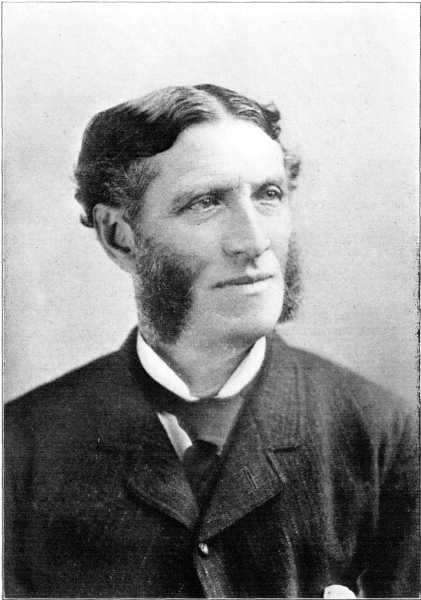"To a Friend" http://www.poetry-online.org/arnold_to_a_friend.htm (1849), line 1
Matthew Arnold Quotes
The Functions of Criticism at the Present Time (1864)
"Shakespeare" (1849)
“How fair a lot to fill
Is left to each man still.”
"A Summer Night," Poems: Second Series, (1855), last stanza http://books.google.com/books?id=IzpcAAAAcAAJ&q=%22How+fair+a+lot+to+fill+Is+left+to+each+man+still%22&pg=PA210#v=onepage
Heinrich Heine, p. 144
Essays in Criticism (1865)
On Translating Homer (1861)
"To Marguerite, in Returning a Volume of the Letters of Ortis" (1852), stanza 1
Act I, sc. ii
Empedocles on Etna (1852)
Preface
Culture and Anarchy (1869)
“The men of culture are the true apostles of equality.”
Source: Culture and Anarchy (1869), Ch. I, Sweetness and Light
The Functions of Criticism at the Present Time (1864)
“I am past thirty, and three parts iced over.”
Letter to Arthur Hugh Clough (12 February 1853)
“Singing, "Here came a mortal,
But faithless was she:
And alone dwell for ever
The kings of the sea."”
St. 7
The Forsaken Merman (1849)
Heinrich Heine, p. 146
Essays in Criticism (1865)
“A beautiful and ineffectual angel, beating in the void his luminous wings in vain.”
On Percy Bysshe Shelley, Byron
Essays in Criticism, second series (1888)
Joseph Butler, Human Nature and Other Sermons, "Sermon VII" as quoted in Arnold's "St. Paul and Protestantism" (1870).
Misattributed
" Shakespeare http://classiclit.about.com/library/bl-etexts/marnold/bl-marn-shakes.htm" (1849, st. 1)
"Schools and Universities on the Continent" (1868)
Diary entry for the day he died (15 April 1888); from Ecclesiasticus, xxxviii
Matthew Arnold's Notebooks (1902)
St. 3
Dover Beach (1867)
“O strong soul, by what shore
Tarriest thou now? For that force,
Surely, has not been left vain!”
St. 4
Rugby Chapel (1867)
“And amongst us one,
Who most has suffer’d, takes dejectedly
His seat upon the intellectual throne.”
St. 19
The Scholar Gypsy (1853)
The Functions of Criticism at the Present Time (1864)
G.W.E. Russell, Collections and Recollections, ch. XIV, Harper & brothers, 1898, p. 136 https://archive.org/details/collectionsandr02russgoog/page/n152. Russell states that was said to him by Arnold himself.
Attributed
Source: Culture and Anarchy (1869), p. 41
“Hear it, O Thyrsis, still our tree is there!”
Ah, vain! These English fields, this upland dim,
These brambles pale with mist engarlanded,
That lone, sky-pointing tree, are not for him;
To a boon southern country he is fled,
And now in happier air,
Wandering with the great Mother’s train divine
(And purer or more subtle soul than thee,
I trow, the mighty Mother doth not see)
Within a folding of the Apennine.
St. 18
Thyrsis (1866)
nearer, perhaps, than all the science of Tübingen. Adorable dreamer, whose heart has been so romantic who hast given thyself so prodigally, given thyself to sides and to heroes not mine, only never to the Philistines! home of lost causes, and forsaken beliefs, and unpopular names, and impossible loyalties!
Preface to the Second Edition (1869)
Essays in Criticism (1865)
“The power of the Latin classic is in character, that of the Greek is in beauty.”
Now character is capable of being taught, learnt, and assimilated: beauty hardly.
"Schools and Universities on the Continent" (1868)
St. 1
Dover Beach (1867)
Stanzas from the Grande Chartreuse (1855)
Stanzas from the Grande Chartreuse (1855)
Better so! </p><p> All pains the immortal spirit must endure,
All weakness which impairs, all griefs which bow,
Find their sole speech in that victorious brow.</p>
"Shakespeare" (1849)
